TYPES OF DAFFODILS TO KNOW AND GROW
Daffodils are the most carefree of all spring-flowers. They grow almost anywhere and aren’t bothered by deer or rodents. Best of all, daffodils multiply quickly. They return every spring in greater numbers and will bloom reliably for generations.
Daffodil flowers come in many different shapes, sizes and color combinations. The American Daffodil Society classifies daffodils by their flower shape, and there are officially 13 different classifications. You don't need to know which daffodil belongs to which classification – unless you’re a botanist or daffodil collector. But seeing the full range of possibilities is bound to inspire you. There's always room for more daffodils!
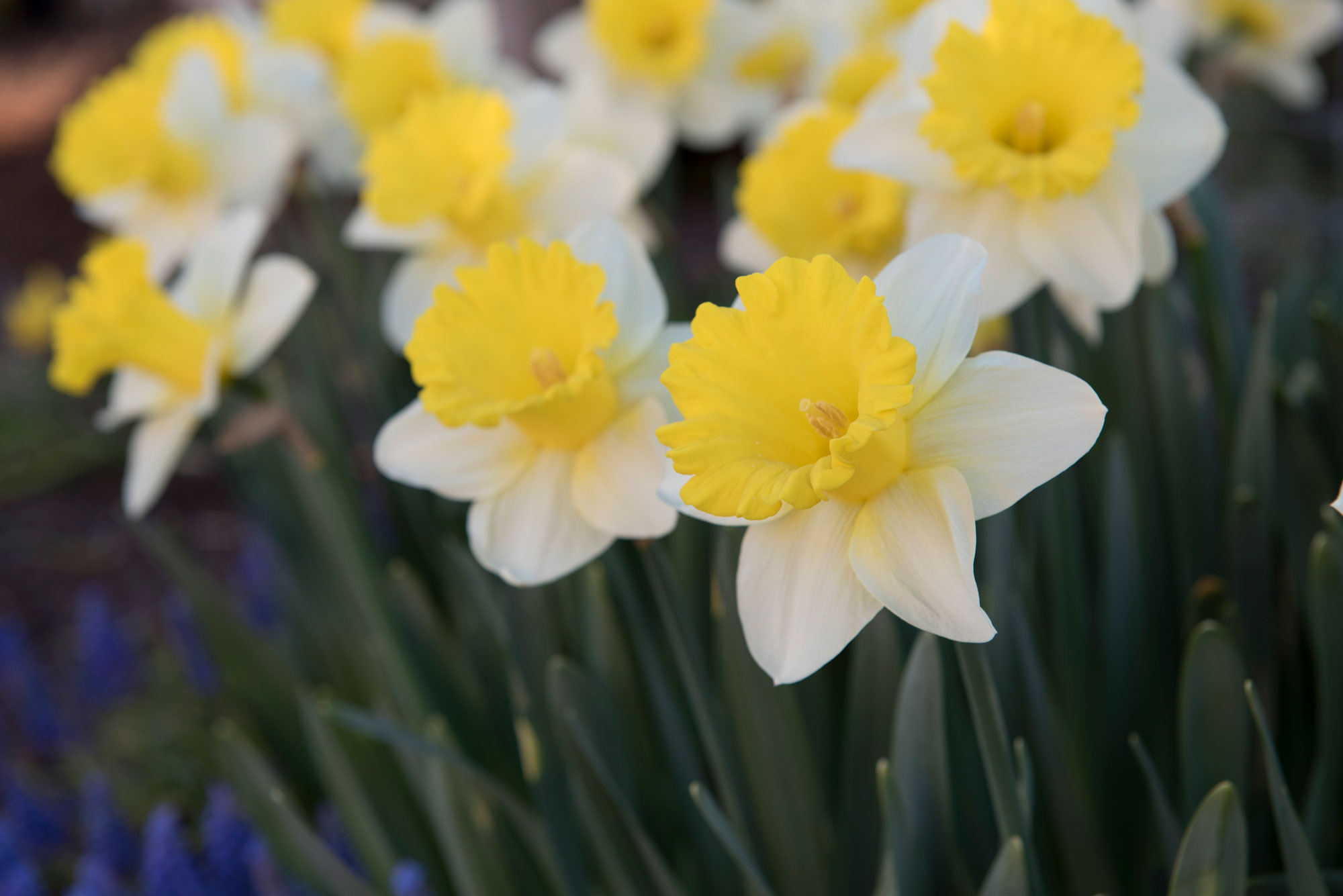
Trumpet or Long Cup
Trumpet daffodils have prominent cups that are as long or longer than the petals. The flowers are large overall and the plants are vigorous, which makes them an excellent choice for naturalizing. One flower per stem. Trumpet daffodils grow best in cold climates (zones 3-7). Examples include Dutch Master , Mount Hood, Yellow River, Rijnveld's Early Sensation and Goblet (shown above).
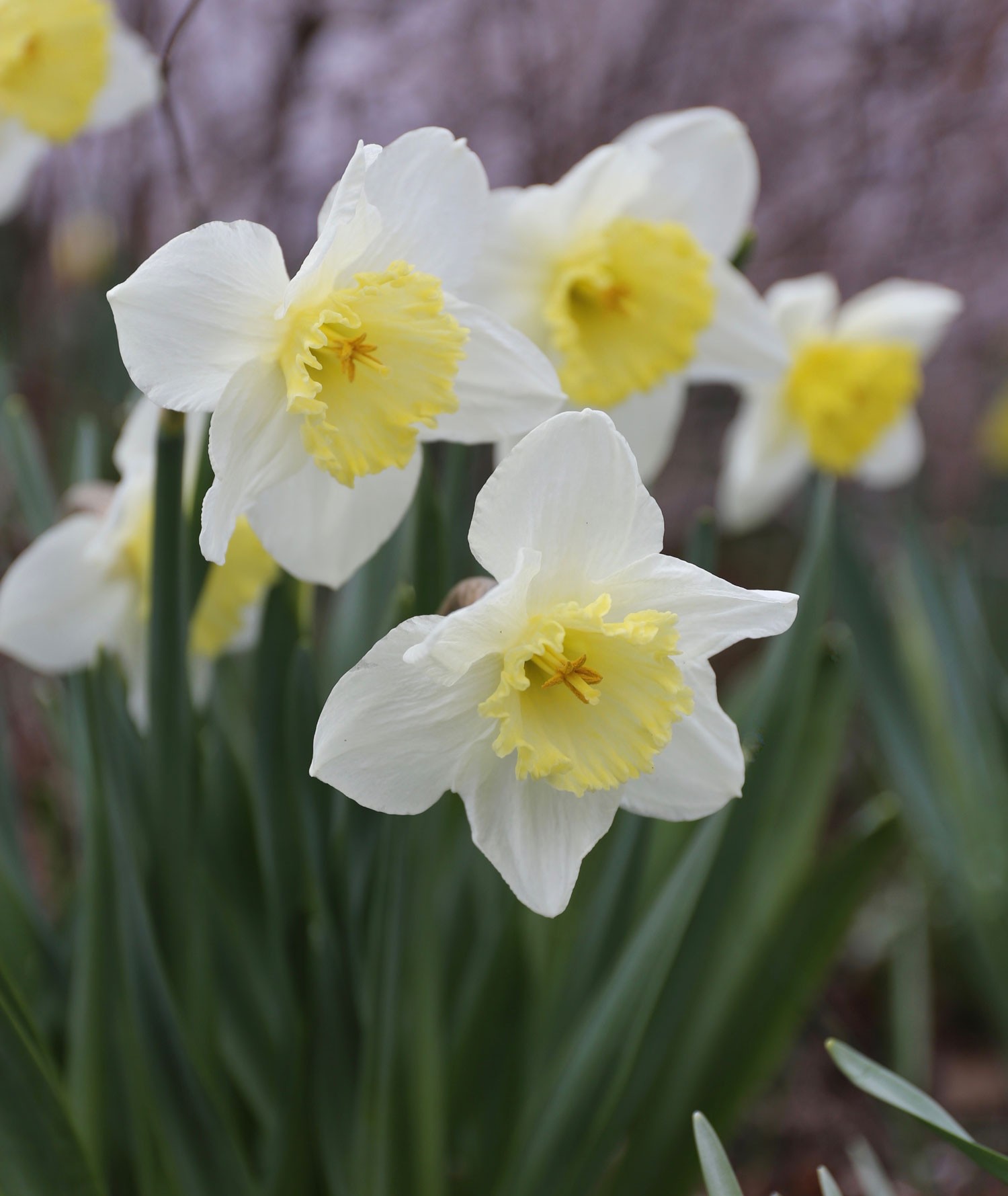
Large Cup
Large cup daffodils have big flowers with prominent cups. The cups can be trumpet-like, bowl-shaped or flat and may have smooth or heavily ruffled edges. Cups are often a different color from the petals. One flower per stem. These daffodils are strong growers and good naturalizers. Examples include Ice Follies, Professor Einstein, Orange Progress, Red Devon (shown above on left) and Pink Pride.
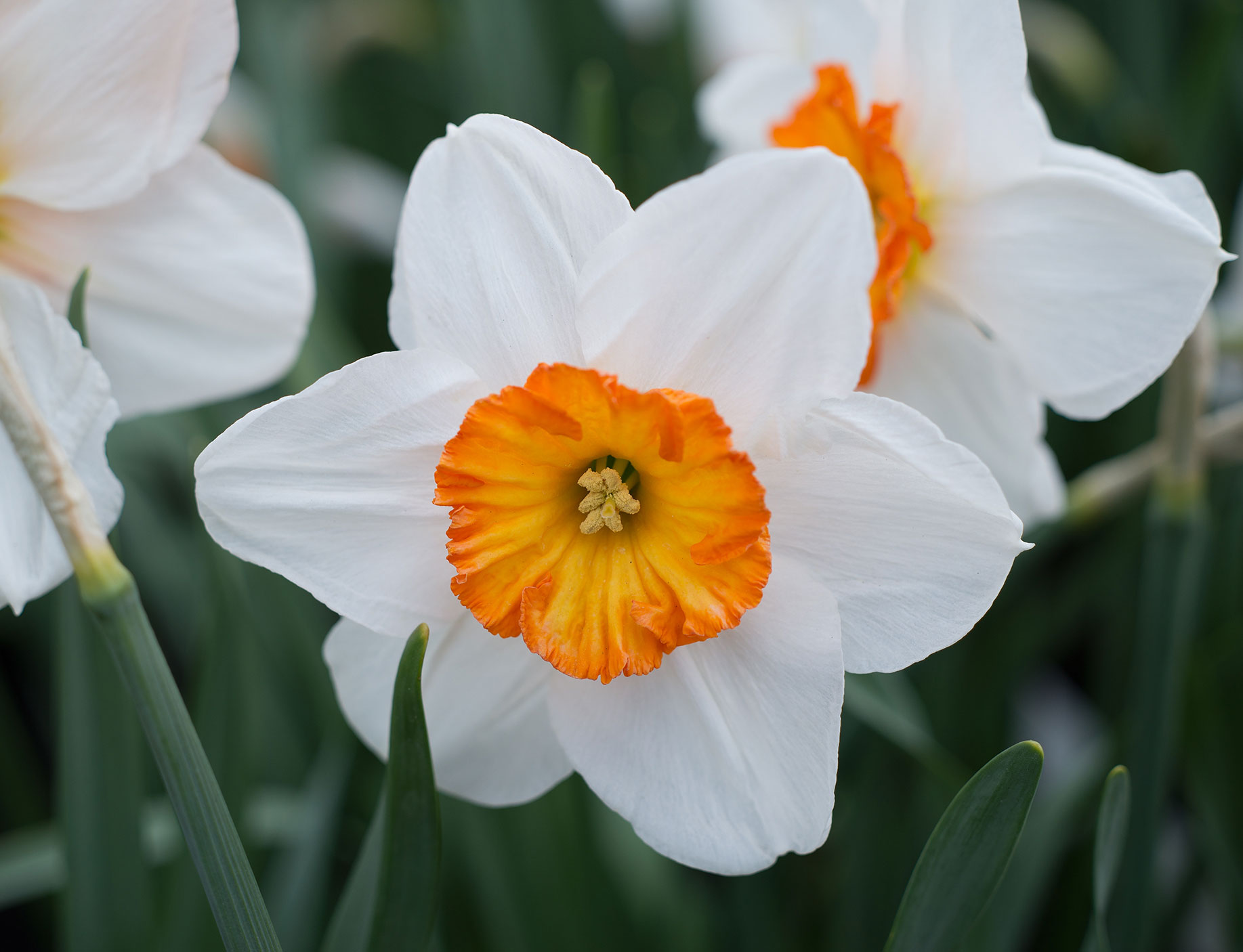
Small Cup
These charming small cup daffodils have short cups that are less than 1/3 the length of the petals. They produce one blossom per stem. Most varieties bloom late in the season and have a nice fragrance. Barrett Browning is a popular small cup daffodil.
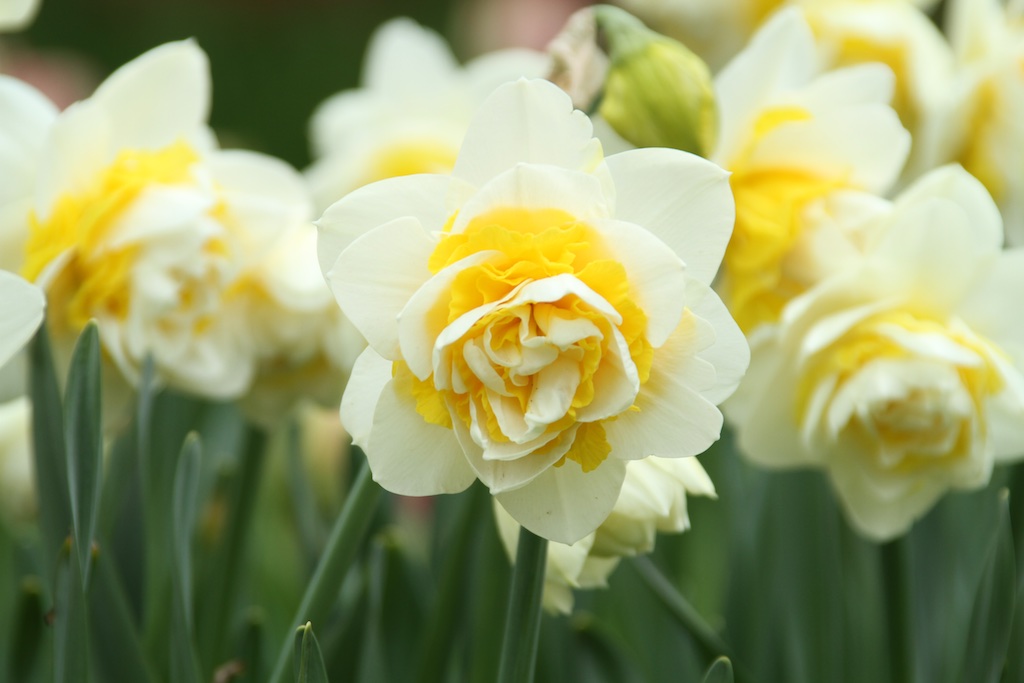
Double
These showy daffodils feature multiple layers of outer petals and instead of cups, the center of the flower is a bouquet of petals. With many double daffodils, it can be difficult to distinguish the cups from the petals. Usually one, but sometimes two flowers per stem. Great for cutting and often fragrant. Popular double daffodils include Delnashaugh, Golden Ducat, White Lion, La Torche, Sherbourne, Double Smiles, Lingerie (shown above) and Tahiti.
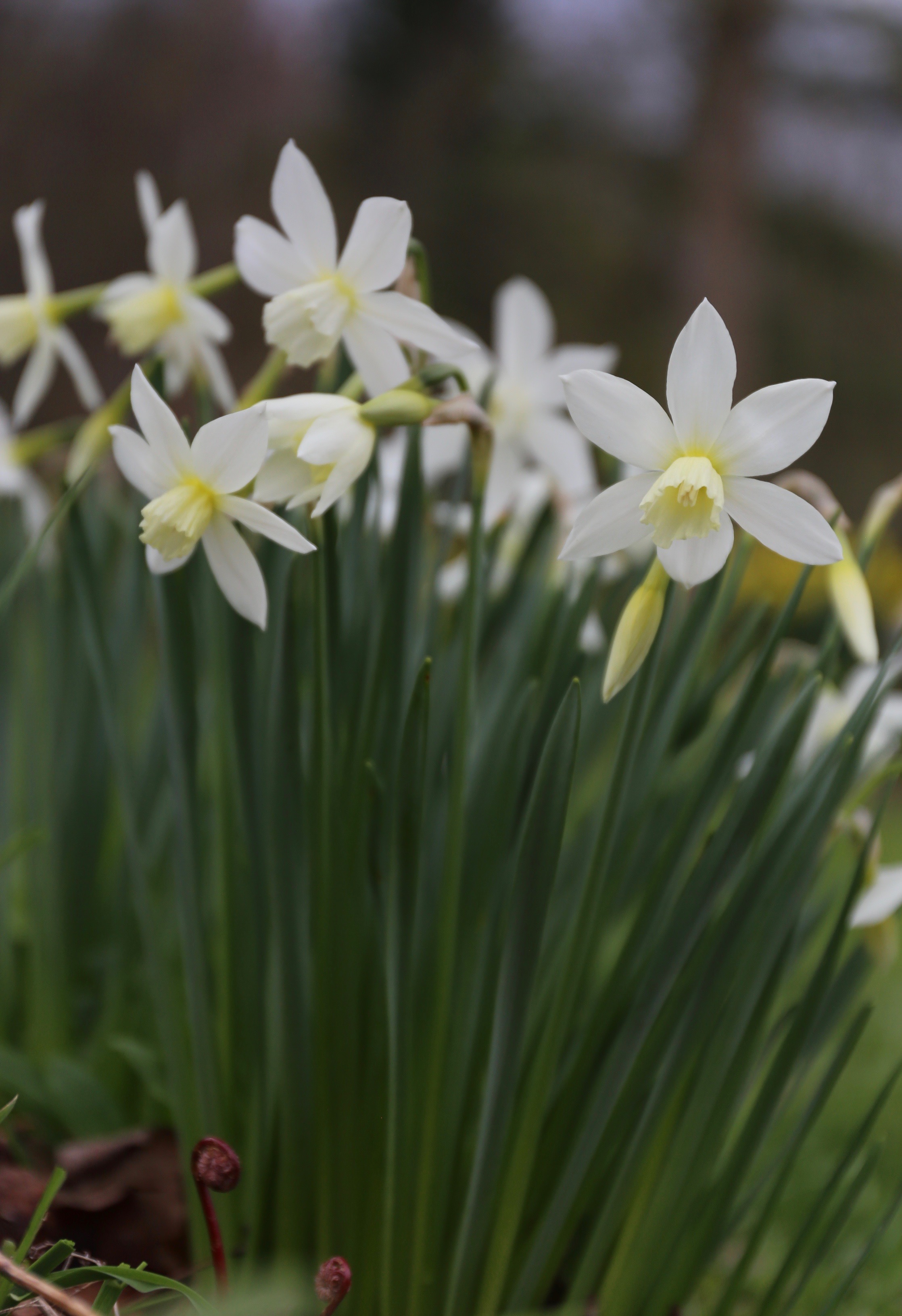
Triandrus
Triandrus daffodils usually have two or more flowers per stem. The blossoms are typically downward-facing with reflexed (pulled back) petals. Many varieties are fragrant. With smaller flowers and shorter stems than standard daffodils, they're a good choice for perennial gardens and containers. All varieties are shade tolerant and good naturalizers. Thalia (shown here) is an outstanding example of this type of daffodil.
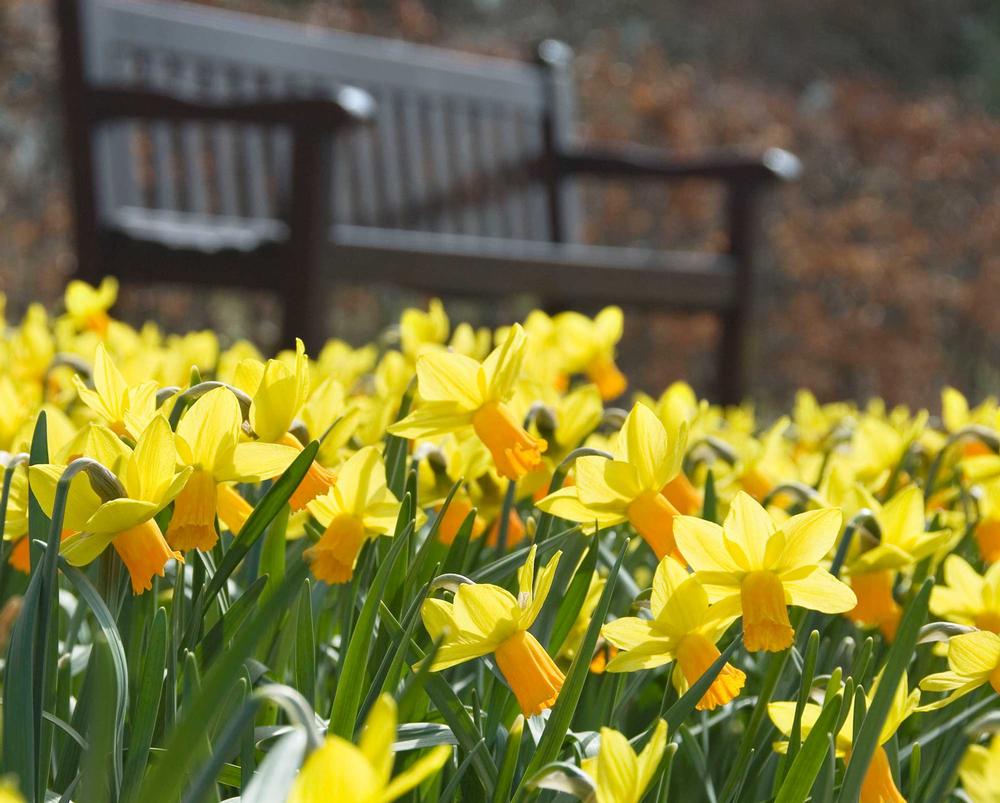
Cyclamineus
These daffodils have are easy to recognize. Most varieties have reflexed petals (pulled back) and small, narrow cups. Cyclamineus daffodils are moisture and shade tolerant and good for forcing. They bloom in early spring and are shorter than most other daffodils. Examples include Jetfire (shown above), Tete a Tete, and Baby Boomer.
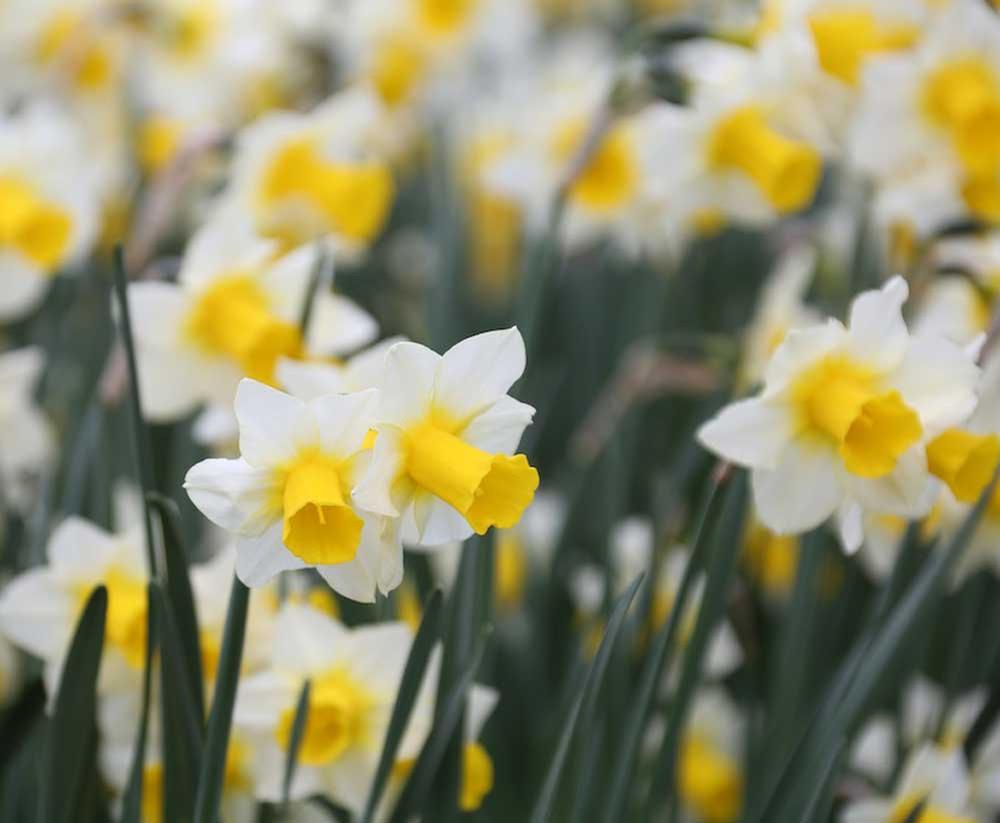
Jonquilla
Jonquilla daffodils have petite flowers with small, open cups. There are usually several flowers per stem, often in clusters. Most varieties are wonderfully fragrant. They have narrow, grass-like foliage and are good for naturalizing and for forcing. These long-lasting, heat tolerant daffodils are good for both northern and southern gardens. Examples of jonquilla daffodils include: Beautiful Eyes, Golden Echo, Pipit, Silver Smiles and Martinette.
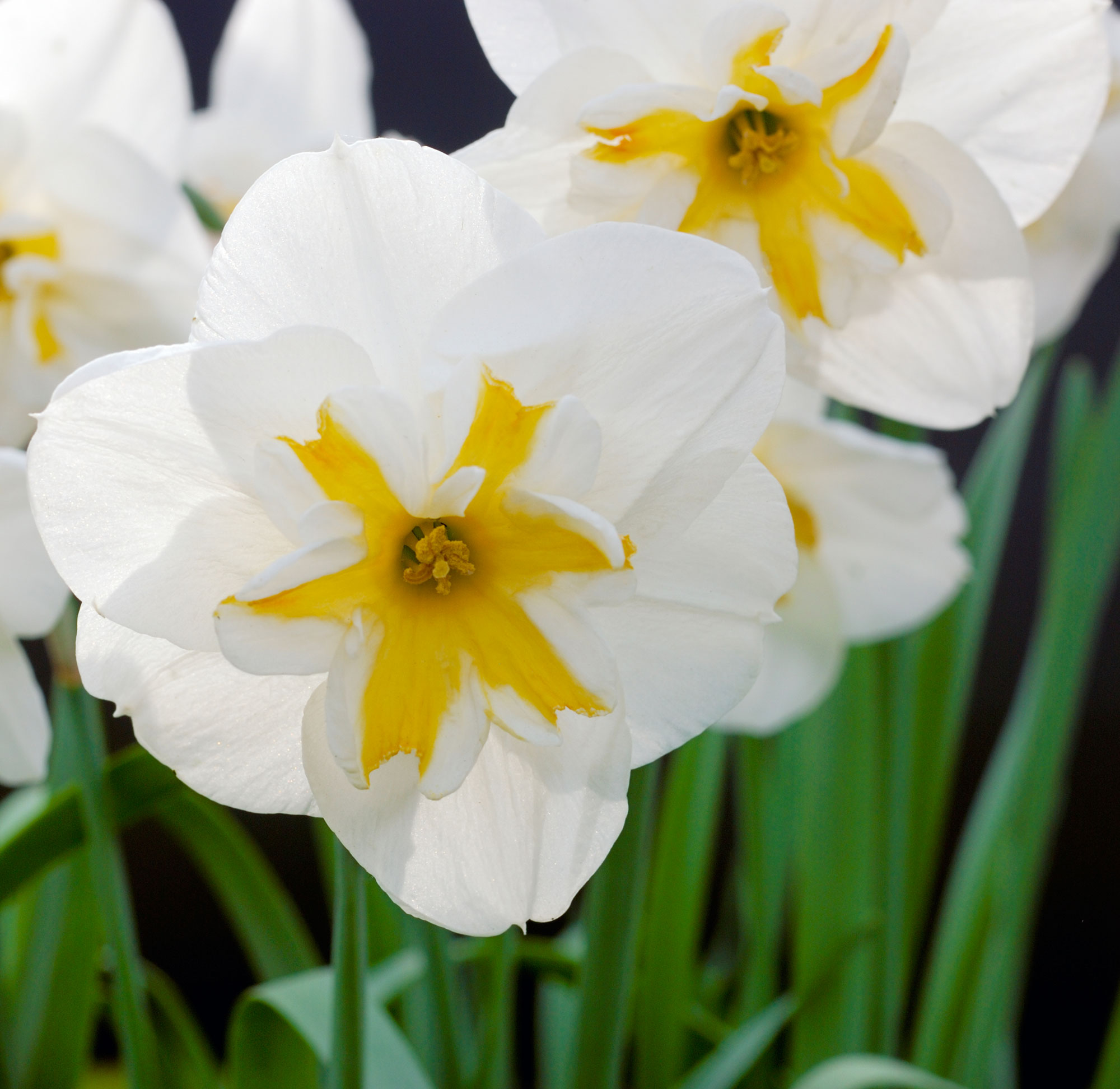
Split Corona
The cups of these fancy daffodils are split into segments and pressed back against the petals. Split Corona daffodils may be frilly or relatively smooth and are usually a different color than the surrounding petals. Most split cup daffodils have large flowers and bloom mid to late in the season. Examples include Cassata, Lemon Beauty and Love Call.
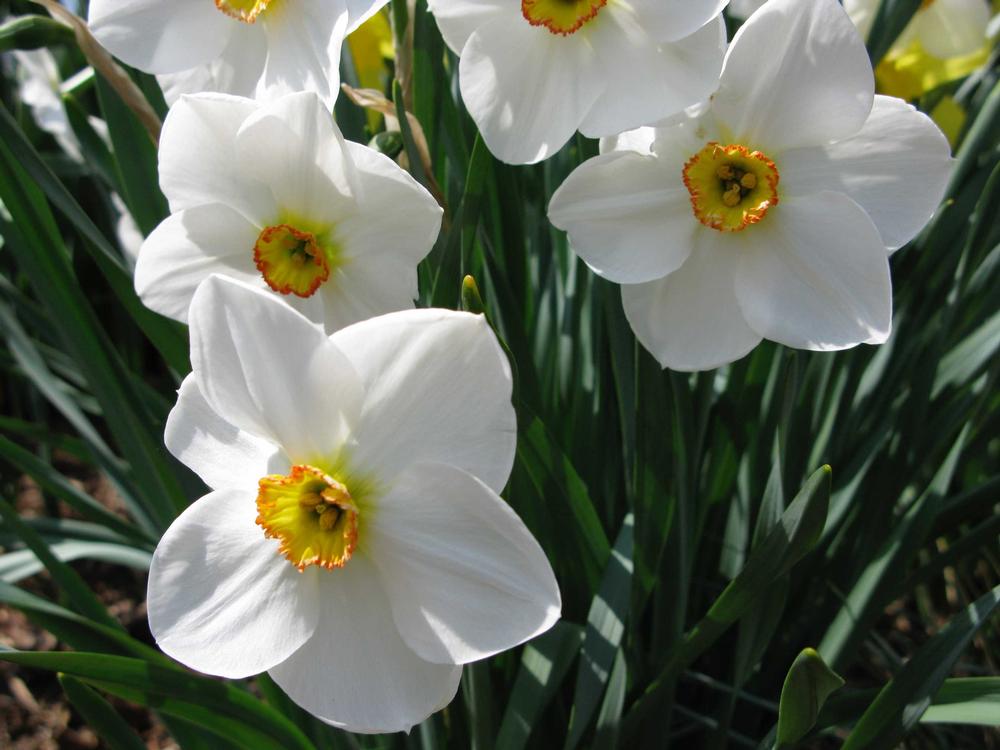
Poeticus
Poeticus daffodils have large white petals and a small flat cup that is typically yellow and ringed with green or red. There is usually one flower per stem and all varieties are very fragrant. Poeticus daffodils bloom mid to late in the daffodil season and are long-lasting. Most are also good for naturalizing. Actea (shown here) is an award-winning heirloom and makes an excellent cut flower.
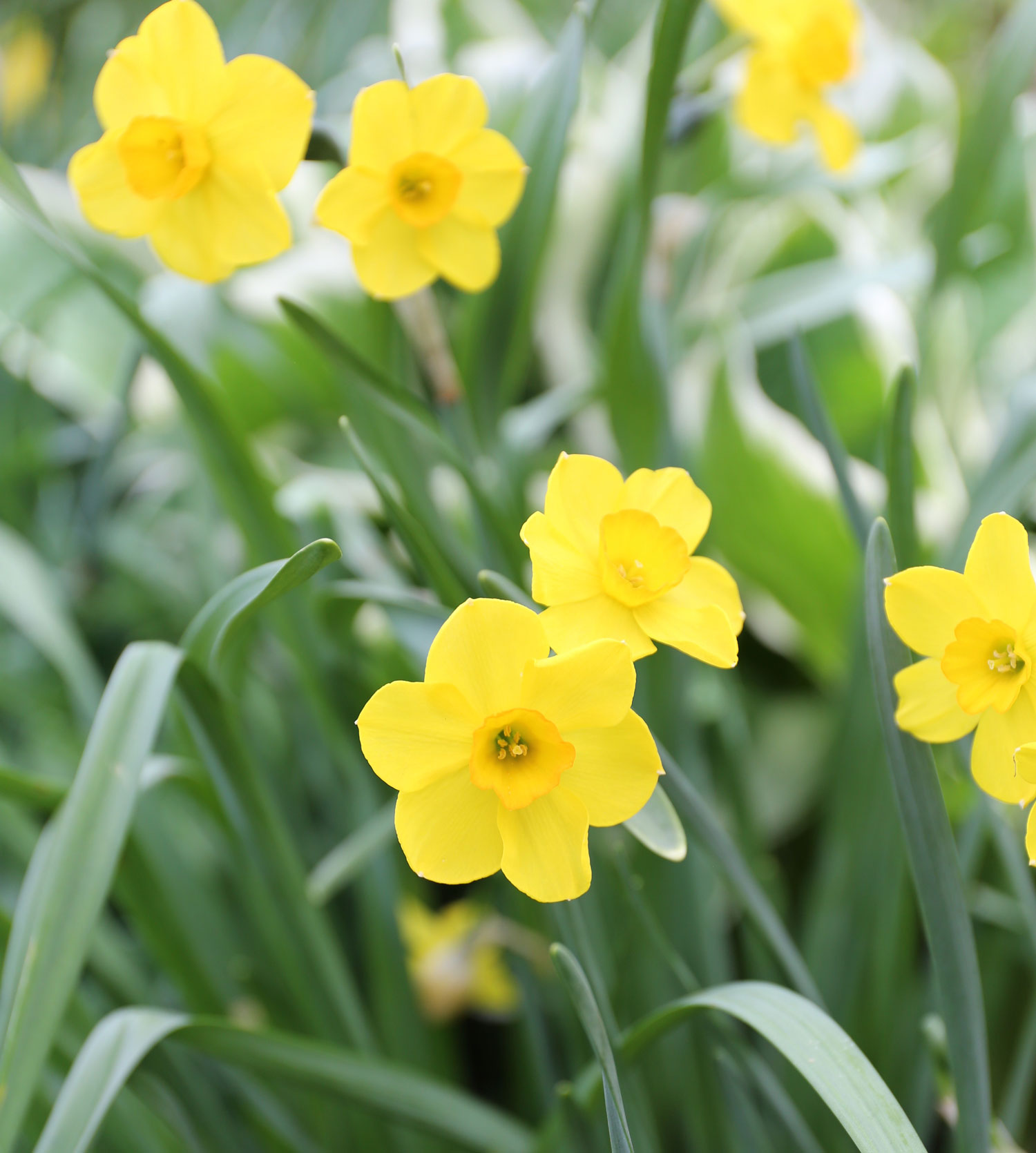
Tazetta
All Tazetta daffodils feature clusters of 2 to 20 dainty flowers on each stem. The flowers have short cups, an intense, sweet fragrance and are very long-lasting. The stems are stout and strong, and the leaves are broad. These daffodils are suitable for both northern and southern gardens. Tazetta daffodils are also good for forcing (paperwhite narcissus are a type of Tazetta daffodil). Garden-worthy examples include: Cragford, Falconet and Golden Dawn (shown).
To learn more about daffodils, you may be interested in reading:
Best Daffodils for Naturalizing
